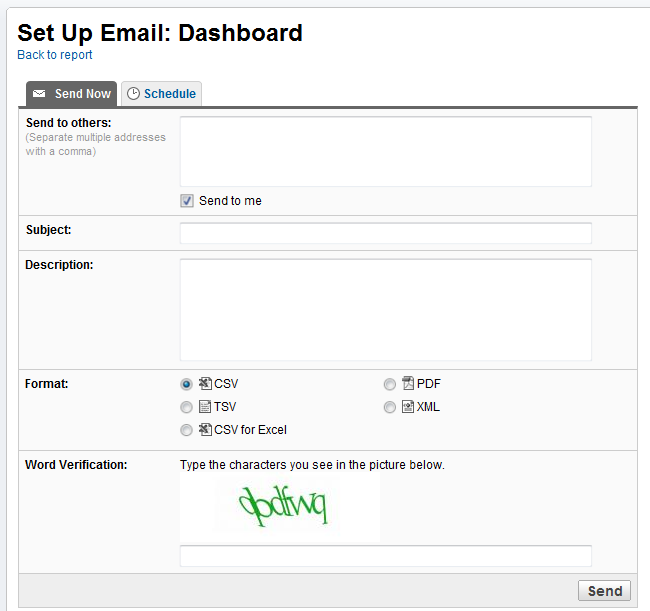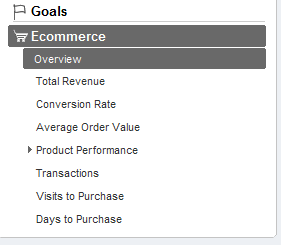“My 5 Favorite, but Often Ignored, Analytics Features” plus 1 more |  |
| My 5 Favorite, but Often Ignored, Analytics Features Posted: 17 Jan 2011 11:06 AM PST This post was written by the Web Marketing Ninja—a professional online marketer for a major web brand, who's sharing his tips undercover here at ProBlogger. Curious? So are we! The wonderful thing about working online is that our work is just so measurable. In just about every other industry, a lot of decisions are based on sample data, or assumptions, or just on gut feel. But online, we can measure just about everything for 95%+ of our visitors—yay for us! In our world of pretty graphs and statistics, we have are a stack of options to ensure we've got our eyes on the numbers. But when it comes to bang for buck (i.e. lots of value for no outlay) there really is no equal, in my opinion, to Google Analytics—and it just keeps getting better. I'm sure a lot of you are already feeling the Google love with Analytics—and if you're an addict like me, you're using it on a daily basis. So I thought I'd share my five favorite, but often ignored, features of Google Analytics. 1. Custom ReportsThere are so many levels, layers, and measures in the Google Analytics interface that I often used to waste time attempting to find my first stop in the system: reports.
2. Scheduled ReportsActually remembering to jump into Analytics to make sure you're across everything can be a challenge. Scheduled Reports make the job much easier. You'll probably have certain reports you'll look at more often than others. If you click on the little email icon on the top-right of a report, you'll be able to set up a schedule so that that report's delivered to you via the inbox. This is a great way to ensure that your busy schedule is not getting in the way of you knowing what's happening on your site. 3. Navigational SummaryIn December I wrote about the concept of sales funnels, and a lot of you asked how on Earth you can manage to measure all those steps. Well, the Navigational Summary report will get you started. It covers the essential details for each page view, including where the user came from (another page, external site), and then where they went to (exit, another page)—plus everything in between. This is a key report to start understanding browsing behaviors on your critical pages. You can access the navigational summary through the Content section. I tend to use the Content Drilldown report to find the specific pages I'm after, then click the Navigational Summary for their specific metrics. 4. eCommerce and the $ IndexWhen you set up ecommerce tracking in Google Analytics, you open up a whole new world of insight. It's a feature that's only useful for those selling online, but it's scarily accurate and amazingly insightful. With eCommerce set up, not only can you see reports on the products you're selling, and how much money you're earning, but you can also start to track them back to other pages in your site. You might find that particular types of blog post generate more revenue per page view—and that's where the $ Index kicks in. With this metric you'll know the average income per visit to each page or collection of pages on your site. Unfortunately setting this up is not straightforward, and you might need a little help. There's a good article on the Analytics blog that will help get you moving. Sorry I can't show a good screen shot of this—the information was too sensitive for the other sites I have access to. 5. Goals and FunnelsAlmost all websites have some sort of desired visitor action. It might be to buy something, to fill out a contact form, to download a sample, or even just look at a bunch of other pages. Setting up goals in Google allows you to track these goals like a fox. You get insight into the overall performance of your site, but you can also track back every step of the way. Unfortunately, like eCommerce, this feature can be a little tricky to set up and is something you might wish to get help with. I won't go into too much detail on how to do this—it's all covered on the Analytics blog. Warning: Analytics is Like QuicksandI often tell people that Google Analytics is a little like quick sand. Once you make that first step, it starts to really suck you in, and a short time later you're stuck for good. More time passes and all of a sudden your head goes under—everything goes dark and you have no idea where you are. It's at that point that too many people go back to assumptions and guesswork, murmuring something about leaving "all that statistics guff" to the eggheads. If you've fallen into the Analytics quicksand, my recommendation is to keep things simple. Identify ten key metrics you want to measure, create a report or set of reports that deliver you those metrics, and review them over time. Once you're comfortable, move a little deeper. The more you understand about your business, the better-informed decisions you can make—and it's the decisions that will make or break your business, not the numbers. As I mentioned, Google Analytics in my favorite stats package, but I'd love to hear about any other stats packages you're using and how you're finding them in the comments. Or perhaps you can highlight your favorite functions of Googe Analytics that I've not covered… Stay tuned from most posts by the secretive Web Marketing Ninja—a professional online marketer for a major web brand, who's sharing his tips undercover here at ProBlogger. Post from: ProBlogger Blog Tips |
| Secrets to Making Money Online Posted: 17 Jan 2011 05:00 AM PST I recently had a conversation with a friend who has just started out with making money from blogging. He had been struggling to get over the initial hump of getting things going and wanted to pick my brain on the “secrets” of how to do it. Of course I struggled to answer at first—there’s simply not a simple equation on how to blog that will guarantee results—however, I did put together some thoughts for him that he found helpful. In this video, I summarize what I said. While it’s fairly general in nature, I hope it’s helpful as we enter into a new year. Secrets to Making Money Online TranscriptionI had a conversation earlier today with a new friend who's just started to blog. He's been going for a couple of months now, and he’s a little bit frustrated. He's hit a couple of brick walls, and he wanted to sit down and just sort of pick my brain on the secrets to making money from blogging and making money on the Internet. And, look, it's question I get asked a lot—particularly in interviews. You know, "What's your number one secret to making money online?" And I always struggle to answer it, because ultimately there is no secret and there's no one way to do this. You can look at the variety of Internet marketers and see a whole heap of different methods to do it and approaches to do it. But I began to share with this friend some of the things I guess that I've learned, particularly in the last year or two, about making money online. And I asked him for his notes, because he was writing everything down, so that I could share it in a video. And this is kind of the stuff that I said to him. Number one, I talked about trying to do something online that you really love. Choose an area, a topic, a niche, an industry, that you have some resonance with, some appreciation for, some passion for. There's a whole heap of reasons for doing this. One, it's much easier to stick with it for the long term. Two, those who read what you produce and come across you will feel much more drawn to you if you are passionate about it yourself. And I just personally find it much easier to make money from something that I actually have a genuine interest in, because I'm able to produce products and blog posts and content that connects with people, because I know what turns those people on, and I know what will get them reading. I know what will get them purchasing. So if you have an interest, if you have a passion, then try to center what you do online around that. That doesn't mean you can't make money from something you're not interested in or that you don't like; it's just a lot easier to do it that way. The second thing I'd say—and I repeat this over and over again on ProBlogger, but I think it just needs to be said—is be as useful as you possibly can. One of my most recent videos on ProBlogger was about my son telling me, "Tell the world something important." And really, that is it. That is what it's all about for me. Again, you can make money online by doing things that aren't useful, that aren't important, that aren't really enhancing people's lives, by ripping people off, but it's much more satisfying if you're doing something that is actually useful, and it's much more sustainable in the long term if you want to build a business, rather than just make a quick buck, if you actually make connections with people and be useful to them. The third thing I said was that you need to be confident. Once you've chosen something to produce and to focus in on, and once you are starting to be useful, it's much easier to be confident—but you still need to work on that confidence. Many people get online, and they feel that they're not able to sell themselves, they're not able to sell the things that they do. And, look, that's difficult to do, but you need to learn how to do that. You need to approach this confidently. You need to make offers confidently. You need to approach other potential partners confidently. If you are nervously doing those things all the time, people will sense that. Now, that doesn't mean you have to be an extrovert and you need to hype things up. A quiet confidence will go a long way for you. So work on that aspect of things. Push yourself forward, if you aren't one of those confident people. Get people around you to encourage you in that as well. So be as confident as you can. The other thing I talked about with my friend today was diversifying what you do, and not just focusing upon one income stream. Now, this is a bit of a tricky one, because if you diversify too much you can end up not really doing anything very well. But what I've tried to do over the last eight or nine years now is diversify on a number of fronts. One, diversify the topics that I write about. Now, I have four different main blogs that I produce content for, four different interests for me, and by doing that I'm diversifying, and if one doesn't go so well I've got the three others to back it up. But I'm also trying to diversify the income streams. And you'll have seen, I've produced a breakdown of my income streams over the last couple of months. And you'll see in that eight or nine different areas of income. I'm not just relying upon ad networks like AdSense, or I'm not just relying upon my own eBooks. I'm trying to build in different income streams so that if one falls over, or if one takes a little while to take off, there are other things there to supplement that income. In the early days of my own blogging and making money online, I diversified by having a real job as well. When I first started I had three jobs, so I had this diversification, I guess, of the income streams, and that helped me to be much more sustainable in the long term. Speaking of long term, the number five thing that I'd say is that you really need to take a long-term view of this. You can make money fast on the Internet, but it generally comes after years of building foundations. A number of times, I feel like I've made a lot of money really fast on the Internet, but as I look back on it there's usually been two or three years of work, of building relationships with readers and producing content for free, that have led to these bursts of income. And so you do need to take a long-term view of things. You need to see it as an investment. A lot of the times, when you make investments, you don't get a return on those investments for a number of years, and the same is true on the Internet. See the time, the energy, and perhaps even some money that you've put into these things as an investment that hopefully, one day, will pay off. The last thing I guess I said to my friend was that you really need to treat it as a business rather than just an event. Making money online … again, it can happen as an event, it can be these moments where you make money, but most online entrepreneurs actually see it as a business. It's not just a one-off thing where they make money, and then they go and try something else. What I've tried to do is to build a business that has this diversity of income, but is also growing over time. As you release a new product, you need to think about ways of driving traffic back to that product over time. As you do affiliate marketing, you need to build systems that will continue to promote things to your readers using, say, an autoresponder. You need to think a bit strategically, I guess is what I'm trying to say. A lot of people get online, and they produce content, and they think that it will make money by just getting readers. You need to think strategically about how you're actually going to monetize it. So you need to think about it as a business, you need to think about it strategically, and probably one of the main things for me in terms of building a business rather than just having a job online is to actually build products into what you do. Don't just rely upon advertising revenue, or marketing other people's products. Whatever you do, try and work towards having some products that you can sell of your own, and then develop systems around those products to sell them, not just when you launch them, but in an ongoing way. They're some of the secrets of making money online that I guess I've been thinking about, particularly over the last year or two. There's a whole heap more of course, but I'd love to hear some of your secrets to making money online. You can leave them in the comments below this video, and I'd love to connect with you there. Post from: ProBlogger Blog Tips |
| You are subscribed to email updates from ProBlogger Blog Tips To stop receiving these emails, you may unsubscribe now. | Email delivery powered by Google |
| Google Inc., 20 West Kinzie, Chicago IL USA 60610 | |






Tidak ada komentar:
Posting Komentar